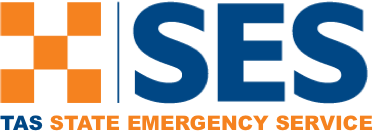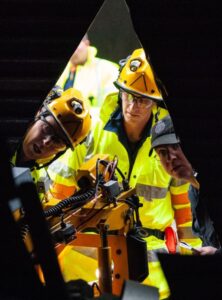Understanding Lessons “LANGUAGE”
Consistency in the use of terminology and definitions leads to a common understanding to all users. Learning lessons leads to improved operational effectiveness, reduced operational risk and increased cost efficiency.
Consistent approaches to Lessons Management will encourage adaptability and flexibility across sectors and the sharing of knowledge and experiences will assist with ongoing continuous improvement of people and organisations.
Lessons Managers need to be aware that organisations and individuals use terms and techniques inconsistently and sometimes interchangeably. There are no agreed definitions to delineate the terms. Lessons Managers need to be aware of their own organisation’s procedures and terminology and be aware that other agencies will continue to use different procedures and terminology. (AIDR, Lessons Management Handbook 2019)

To gain an understanding of Lessons Management it is important that you become familiar with the list of terms/definitions that are referred to when discussing aspects of Lessons Management. The list below is an initial list of terms whilst other definitions are embedded throughout the module:
Lessons Management is an overarching term that refers to collecting, analysing, disseminating and applying learning experiences from events, exercises, programs and reviews (AIDR, 2019:3).
Knowledge Management is an umbrella term for the systematic process by which knowledge needed for an organisation to succeed is created, captured, shared and leveraged (Rumizen 2001). There are three types: Tacit, Explicit and Organisational.
Interoperability is the ability of systems to work together in order to communicate and exchange information when necessary. Interoperability comes into play during natural disasters, man-made disasters, national emergencies, major car, aviation, or navigable water accidents or other emergencies.
The analysis used to identify the root causes of raw observations.
The process of systematically applying statistical techniques and/or logic to interpret, compare, categorise and summarise data collected to refine observations.
The Tasmanian Context
In Tasmania there is an appetite for change to ensure there is an effective and consistent approach taken to lessons identification and collection which we will explore in this module. The increased ability to share lessons learned state-wide, within the regions, nationally and internationally will improve our current emergency management sector practices and contribute to mitigating risks in Tasmanian communities.
It is acknowledged that Tasmania has experienced emergency events including (but not limited to) storms, floods, droughts, bush fires and pandemic influenza which reminds us of the constant need to review and learn from these events. The scale, complexity, unpredictability and impact of these disasters highlight the need to improve the management of knowledge and lessons.It is highlighted in Tasmania that:
- Tasmanian Communities and their assets are at increased risk of being exposed to the impact of these disasters.
- The need to share information, manage knowledge and learn from others within the emergency management sector is paramount following an incident, exercise or review.
- Continuous improvement and development across the EM sector contribute to our collective ability to learn from experience, manage knowledge gained and develop learning organisations that can adapt to deal with current, emerging and unexpected threats.
This creates a learning and improvement culture and allows the process of identifying and learning lessons to happen effectively and continuously before, during and after exercises and operations. Lessons Management is another area of education that is available to people who work in or have an interest in emergency management which helps the lessons ‘lifecycle’ to be widely understood and adopted in Tasmania.




- Just/fair
- Leadership
- Responsibility and accountability
- Communication
- learning focused.
Training
In Tasmania some organisations perform Exercises and Training as part of a Lessons Management process. Training of current and new personnel should be given a level of priority which ensures that knowledge and skills required to maintain a Lessons Management capability do not get diluted or lost over time. Quality and timely training and education will build the confidence of practitioners and enhance the profile of Lessons Management.
Training should be focused on clear expectations, roles and responsibilities, and include tools, techniques and concepts. Training needs include:
• How to create a culture of learning
• Planning and conducting debriefs
• Real-time lessons
• Communication and engagement
• The lessons analysis and management processes.
Disasters and disruptions provide an opportunity to learn. Distilling the causes and sharing experiences of what contributed to each disaster, providing evidence or unpicking what happened, all provide important opportunities to learn so that measures can be taken to reduce the chance of the same thing happening again. (Profiling Australia’s Vulnerability 2018)
Lessons Management in Australia
Across the Australian emergency management sector, a range of Lessons Management approaches are being explored and implemented by a variety of organisations, departments and agencies. The majority of these agencies are aiming to support a culture of learning and improvement. An aspect of taking a consistent approach to Lessons Management is the need for organisations to have a lessons capability that adequately resources the collection, analysis, distribution and sharing of lessons in a way that ensures action is taken to effect change.
Ultimately Lessons Management in Australia enables the lessons to be identified, shared and embedded through action and change. Implications for current operations, planning of future operations, as well as capability development through the undertaking of efficient lessons management processes will provide an opportunity for sustained improvement in areas where deficiencies maybe identified. Each state/Territory has or is working towards their own Lessons Management Framework based on the AIDR model.
Accountability
Accountability is an important aspect of Lessons management within an organisation. There are different types of accountability depending on context: accountability for completing actions, (assigning and implementing); accountability for learning from experience (good and bad); and accountability for wilful or illegal actions. A government is accountable for policy and laws affecting its citizens. Individuals are accountable for knowing their roles and being responsible for their actions.
Organisations are accountable for learning from experience and to taking appropriate action where there are knowingly repeated errors or malicious intent. Leaders are accountable for cultivating a culture that supports learning, continual improvement and the development of their subordinates.(AIDR, Lessons Management Handbook,2019 )



